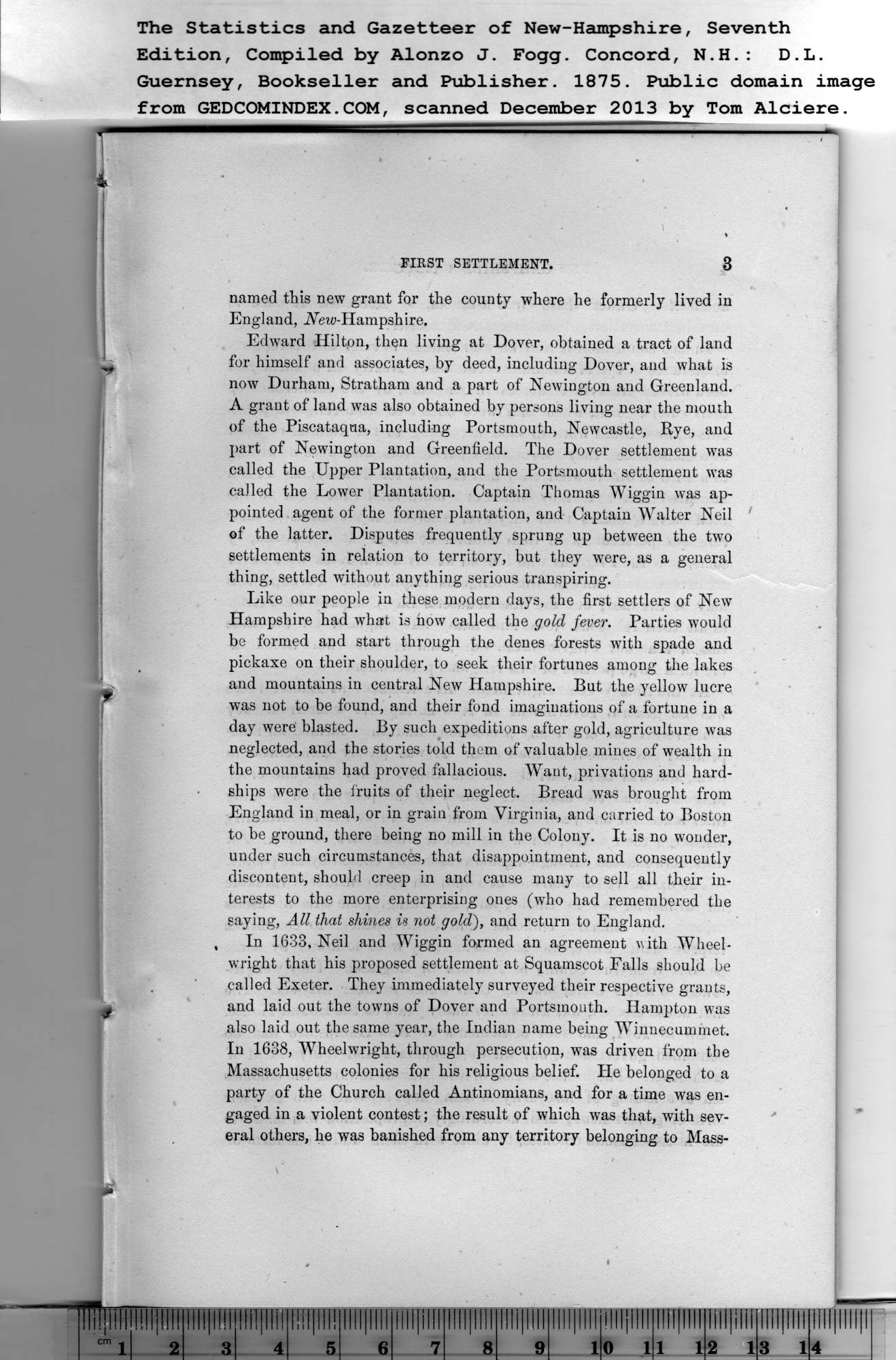|
FIRST SETTLEMENT. 3
named this new grant for the county where he formerly lived in
England, New-Hampshire.
Edward Hilton, then living at Dover, obtained a tract of land
for himself and associates, by deed, including Dover, and what is
now Durham, Stratham and a part of Newington and Greenland.
A grant of land was also obtained by persons living near the mouth
of the Piscataqua, including Portsmouth, Newcastle, Rye, and
part of Newington and Greenfield. The Dover settlement was
called the Upper Plantation, and the Portsmouth settlement was
called the Lower Plantation. Captain Thomas Wiggin was ap-
pointed agent of the former plantation, and Captain Walter Neil
of the latter. Disputes frequently sprung up between the two
settlements in relation to territory, but they were, as a general
thing, settled without anything serious transpiring.
Like our people in these modern days, the first settlers of New
Hampshire had what is how called the gold fever. Parties would
be formed and start through the denes forests with spade and
pickaxe on their shoulder, to seek their fortunes among the lakes
and mountains in central New Hampshire. But the yellow lucre
was not to be found, and their fond imaginations of a fortune in a
day were blasted. By such expeditions after gold, agriculture was
neglected, and the stories told them of valuable mines of wealth in
the mountains had proved fallacious. Want, privations and hard-
ships were the fruits of their neglect. Bread was brought from
England in meal, or in grain from Virginia, and carried to Boston
to be ground, there being no mill in the Colony. It is no wonder,
under such circumstances, that disappointment, and consequently
discontent, should creep in and cause many to sell all their in-
terests to the more enterprising ones (who had remembered the
saying, All that shines is not gold), and return to England.
In 1633, Neil and Wiggin formed an agreement with Wheel-
wright that his proposed settlement at Squamscot Falls should be
called Exeter. They immediately surveyed their respective grants,
and laid out the towns of Dover and Portsmouth. Hampton was
also laid out the same year, the Indian name being Winnecummet.
In 1638, Wheelwright, through persecution, was driven from the
Massachusetts colonies for his religious belief. He belonged to a
party of the Church called Antinomians, and for a time was en-
gaged in a violent contest; the result of which was that, with sev-
eral others, he was banished from any territory belonging to Mass-
PREVIOUS PAGE ... NEXT PAGE
This page was written in HTML using a program written in Python 3.2
|
